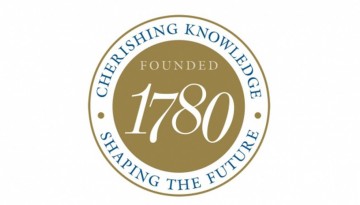Cornell Trio Elected to Prestigious Arts and Sciences Academy
Professors Peng Chen, Timothy A. Ryan, M.S. ’86, Ph.D. ’89, and Mariana Wolfner ’74 have been elected to the American Academy of Arts and Sciences, the academy announced on April 24.
They are among 250 new members of the academy, who are being recognized for their excellence and who are invited to uphold its mission of engaging across disciplines and divides.
“We honor these artists, scholars, scientists and leaders in the public, nonprofit and private sectors for their accomplishments and for the curiosity, creativity and courage required to reach new heights,” said David Oxtoby, president of the academy. “We invite these exceptional individuals to join in the academy’s work to address serious challenges and advance the common good.”
This year’s induction ceremony will take place Sept. 21 in Cambridge, Massachusetts.
Chen, the Peter J.W. Debye Professor and associate chair of chemistry and chemical biology in the College of Arts and Sciences (A&S), develops and applies single-molecule imaging and manipulation approaches to interrogate and understand the function and dynamics of nanomaterials and biomacromolecules. His lab’s goals include acquiring fundamental chemical knowledge for developing better strategies for energy conversion as well as for curing and preventing diseases.
“This is a tremendous honor,” Chen said. “I want to thank all my former and current students and postdocs who made the science possible, and to my mentors who unwaveringly supported my career.”
Chen received his Ph.D. from Stanford University in 2004 and joined the Cornell faculty in 2005. He was named an Alfred P. Sloan Research Fellow in 2009 and is a 2019 inductee into the American Association for the Advancement of Science. He received the Chemical Pioneer Award from the American Institute of Chemists in 2019.
Ryan is tri-institutional professor of biochemistry and professor of biochemistry in anesthesiology at Weill Cornell Medicine; he also is a Howard Hughes Medical Institute Janelia Research Scholar. The Ryan lab explores the molecular underpinnings of nerve terminal function in both healthy and diseased states, and develops and deploys quantitative optical tools to study single synapse biology. The lab seeks to understand how nerve terminals, the presynaptic site where neurotransmitter is released, are controlled at the molecular level.
“It is an honor to be nominated to the American Academy of Arts and Sciences, let alone to be elected,” Ryan said. “This academy has a rich and long history dating back to the founding of the country, and to now join the ranks of the many luminaries in the arts and sciences that have previously been elected is humbling.”
Ryan, who joined the Weill Cornell Medicine faculty in 1997, was named an Alfred P. Sloan Research Fellow in 1999. He is a two-time recipient of the McKnight Technological Innovations in Neuroscience Award; a recipient of the NINDS Javits Award; and a recipient of the Siegel Family Award for Outstanding Biomedical Research. He currently serves on the National Institutes of Health’s National Advisory Neurological Disorders and Stroke Council.
Wolfner is the Distinguished Professor of Molecular Biology and Genetics (A&S) and a Stephen H. Weiss Presidential Fellow. Wolfner’s research focuses on understanding, at the molecular and gene level, the important reproductive processes that occur around the time when a sperm fertilizes an egg. Using the Drosophila melanogaster (fruit fly) model, the Wolfner laboratory studies the molecular signals that “activate” an oocyte to begin embryo development, and how seminal proteins modulate the reproductive physiology and behavior of female insects.
“I’m so grateful and overwhelmed to have been elected into the company of many of my heroes,” Wolfner said. “This honor really recognizes the work of the amazing undergraduate and graduate students, postdocs and staff with whom I’ve had the privilege to work, and the colleagues and environment here at Cornell that made our work possible.”
Wolfner received her Ph.D. from Stanford University in 1981 and joined the Cornell faculty in 1983. She was elected to the American Association for the Advancement of Science in 2006, and to the National Academy of Sciences in 2019. She won Cornell’s Kendal S. Carpenter Award for Distinguished Advising in 2012, and is currently in her second stint as associate chair of the Department of Molecular Biology and Genetics.
Newly elected fellows of the academy include New York Times columnist Jamelle Bouie; actor and activist George Clooney; and Apple CEO Tim Cook.
There are now 171 Cornell-affiliated members of the academy, including geneticist and Nobel Prize winner Barbara McClintock, Class of 1923, M.A. 1925, Ph.D. 1927 (1959), physicist and Nobel Prize winner Hans Bethe (1962); chemist and Nobel Prize winner Roald Hoffman (1971); astronomer Carl Sagan (1978); former presidents Frank H.T. Rhodes (1989) and Hunter R. Rawlings III (1995); astronomer Steve Squyres (2005); computer scientist Deborah Estrin (2007); biologist Maureen Hanson (2021); and President Martha E. Pollack (2022).
Founded in 1780, the American Academy of Arts and Sciences is an honorary society that recognizes and celebrates the excellence of its members, and an independent research center convening leaders from across disciplines, professions and perspectives to address significant challenges. The more than 14,600 academy members include Benjamin Franklin, Charles Darwin, Albert Einstein, Margaret Mead, Martin Luther King Jr., Joan Baez and Lin-Manuel Miranda.

